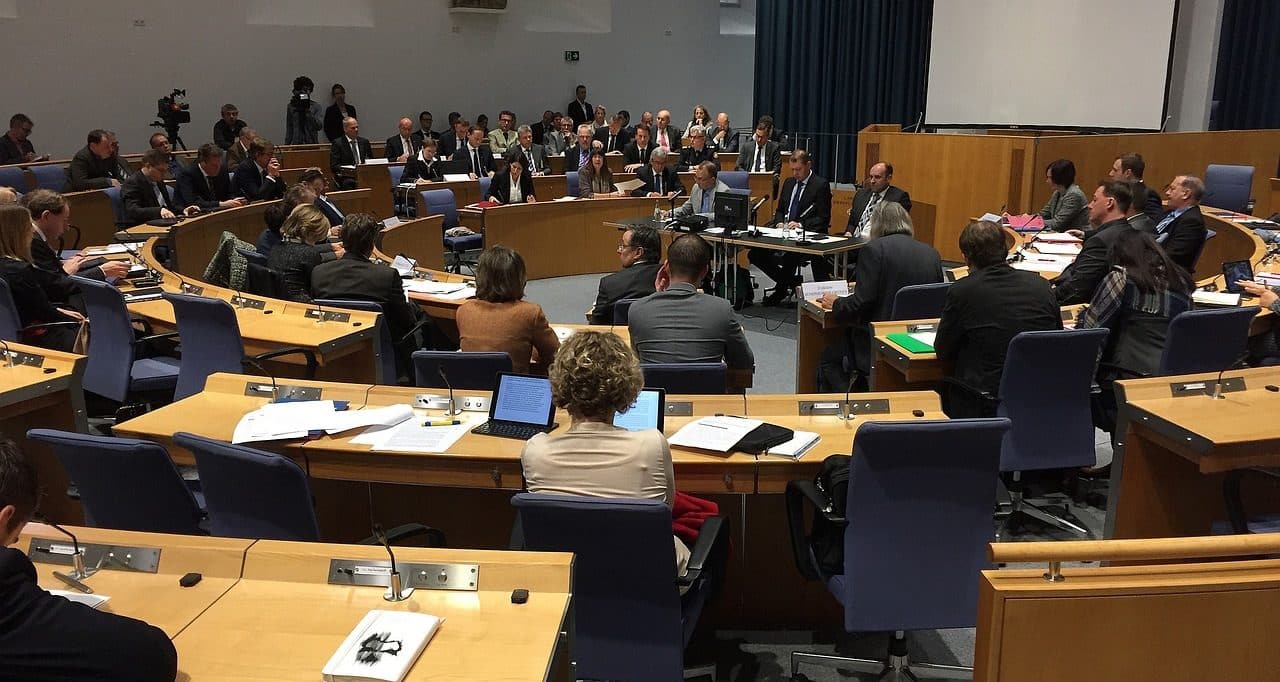
The Argentine National Congress, made up of the upper house ( senators ) and the lower house (deputies), represents and exercises the Legislative Power in the Argentine Republic.
The Chamber of Deputies is one of the two bodies that constitute the Legislative Branch of a nation. As each country has its own state structure and the rulers, officials and government areas are called in different ways, it is interesting to educate yourself about this in order to know the similarities and differences that exist on an international scale in relation to the representatives of society.
Bicameralism , as identified as the parliamentary system that contemplates the operation of a pair of legislative chambers that develop independently and have different features from each other but are equally necessary to guarantee the correct functioning of parliament , governs in a large number of countries.
When we talk about the lower house , in this framework, we refer to the chamber of deputies , while the upper house is the Senate . Both feed the National Congress , the body upon which legislative power falls.
Characteristics of the chamber of deputies
The deputies , elected through the development of an electoral process that guarantees the right to vote and enforces the article of the National Constitution that refers to universal suffrage , are representatives of the citizens.
These legislators, who can present themselves as candidates as long as they meet certain age and place of residence requirements, obtain a seat in the National Congress to be, directly, the voice of their people. They must commit, therefore, to defending social interests and participating with conviction in sessions called for discussion, debate and the enactment of laws that pursue the common good within a society.
In the Chamber of Deputies of the Argentine Republic , to detail a specific case for reference, there are 257 members, who can be re-elected indefinitely and have mandates that extend over four years. They are in charge of receiving bills, have the possibility of calling a popular consultation and can promote a political trial by sending the corresponding accusations to the Honorable Senate of the Argentine Nation , for example.
In Brazil , meanwhile, the number of those who represent the people amounts to 513 deputies, who are appointed through an electoral system that is proportional to the number of people residing in each district or jurisdiction. This same methodology applies in Spain , where the Congress of Deputies is formed with representatives who, after running as candidates on lists presented in each election by coalitions, groups of voters and political parties, are voted in provincial constituencies. It is interesting to mention that, on the Spanish surface, deputies and senators assume the responsibility of appointing an Ombudsman , members of the General Council linked to the Judiciary , personnel of the Court of Accounts and several members of the Constitutional Court .

The chamber of deputies, called the lower house, is made up of representatives of the people. As part of Congress, in addition to discussing and approving laws, legislators must be involved with control tasks regarding the functioning of the Executive Branch.
Electoral process
Both in Argentine territory and in many other nations where there is democracy , to allocate seats in the chamber of deputies, elections are called every certain period of time (formally established).
According to the Argentine National Electoral Code , for example, the method known as D'Hondt is applied when assigning seats, a context in which lists that do not achieve a minimum floor of votes are discarded and mathematical calculations are carried out to know who, and from what political force, will assume their mandate. It should be noted that the number of legislators in each district is proportional to the number of inhabitants.
Activity of the chamber of deputies
The activity of the Chamber of Deputies and the Upper House in Argentina generally begins officially every March 1 with the ordinary sessions inaugurated by the President of the Nation . The meeting period generally extends until every November 30. Sometimes, however, the National Executive Branch calls legislators in order to extend ordinary sessions or to hold extraordinary sessions .

In order to hold a session, it is essential to reach a quorum (that is, a minimum number of legislators present in the room) in the Chamber of Deputies.
Link with other powers of the State
The structure of the National Congress , on Argentine soil, aims to deploy a representative, republican and federal system . It is vital and healthy that the division of powers exists in a State. That the Legislative Branch (in charge of formulating laws), the Judicial Branch (dedicated to interpreting and enforcing current laws) and the Executive Branch (in charge of executing legislation) carry out their functions independently, but it is It is also key that they control each other.
Also the US Constitution , with the purpose of avoiding the concentration of power, recognizes these same branches to organize the federal government . It cannot be overlooked that the United States has a system based on federalism , thus distributing power between state and federal governments .
